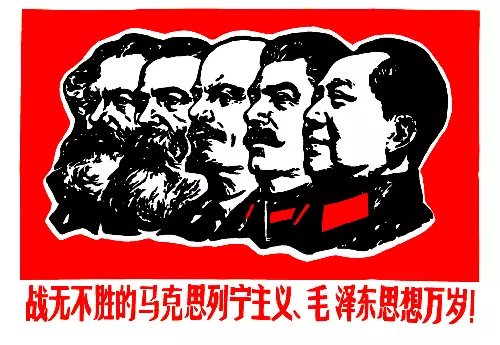If my understanding of materialism is correct when it comes to man’s nature in society and man’s organization of society, society is not formed by an abstraction of the thoughts or ideas of man superimposed in nature but rather the opposite it is mans relation to nature and what man needs of nature and how man extracts from nature that form the basis of mans abstractions of a society. All abstractions have a material basis, man needs to eat so man forages for berries and nuts and fruit, man also hunts for food but man does not have the physical means to take down predators and quick prey so man develops a tool that enhance mans physical limits. Mans relation to nature and mans abstractions of culture or religion or rituals are abstractions of mans relation to the means of sustenance and production of sustenance, society is formed by mans needs of nature.
Each epoch of man has changed mans relation to nature and how man forms abstractions based on their place in history. As man settled on the Fertile Crescent, man had by then discovered simple means of growing food, man no longer had to be nomadic and no longer had to forage for food, at the same time man began to domesticate animals to till the rich soil man could begin to understand a single place as home, as “property”. Where once man was nomadic and settled wherever food was, then man settled early forms of gardening or horticulture and lived in communal homes shared by the families of a tribe then when the agriculture revolution happened man could settle in one place. Each epoch would have changed mans understanding of their place in the world and formed the basis through their changing material conditions for a type of society, one based on property. A society in which there was so much abundance and surplus of food for one tribe made it so outside tribes would either pose a threat or would join raising the population. The contradictions begin with outsiders wanting “in” where all the food is, large tribes become citizens of a “nation”, a council of the most “wealthy” chiefs of different tribal families would form the early “kings” or “rulers”, little by little the need to protect the nation from outside forces would form the basis for the need of not just the men being detached as warriors of the tribe but a standing army to protect that property from “outsiders”. No longer do tribes capture enemy tribe warriors and make them part of the tribe but now subject them to slave labor.
Citizens of the nation need not toil in the fields anymore but slaves who do the work and the citizens extract all surplus of slaves, greatly expanding citizens “wealth”. The beginning of slave economy. All of these things represent material realities, where once man was wholly with nature, as man no longer needed to move in nature the possibility of safety, of a permanent home, the abundance of food created the first “mental break” from nature, the beginnings of society, this separation from nature made man see themselves as distinct from it not of it. Where once may have believed in the spirits in all things of nature over time the spirits began to take a human form as man “conquered” nature, which gave way to the Gods. Beings not human yet very human in character. This “ideas” culture, society, law are abstractions based on the the material conditions of man to their relation to nature, the means of production and sustenance. As the means of production develops so does mans abstractions in relation to the world. Where once the sexes shared responsibility, now the man holds all power of land and law, the woman only attends to the home, the rise of patriarchal society. Where once every person in the tribe once each had equal responsibility to the tribe as a whole, now society has created a division between those “civilized” in the nation/kingdom what have you and the outsiders, other tribes, other peoples, “barbarians” who are made slaves.
Mans thought does not exist outside of nature, man does not change his reality from the pure ideals of imagination but rather it is nature and man, man and nature and mans relations to nature which forms the basis for his imagination of society, collectively. Idealism argues that there’s a law of the universe that stands above humanity, and while it is true that there is a certain order of the universe it’s purely a consequence of material things, mass in a vacuum tends to accumulate to take form, but it isn’t forever things live and die, there’s hot and cold, action and reaction. All natural things in the universe are chemical reactions, that fuse or split but there is an inherent dialectic in the universe, a dialectic that forms the basis of human evolution sociological and economic. Idealism tends to look at the bigger picture and not the smaller parts that make it, the details that form it, as goes with Marxist dialectics and scientific socialism. Socialism existed before Marxism, and socialism of the pre-Marx era was socialism based on idealist philosophers of the time, idealists who didn’t examine the details, the material realities of capitalism and its socio-economic contradictions. Marxism is the attempt to ground socialism not in the ideal but in he material realities of capitalism, of using dialects to understand how to rectify the contradictions of capitalism. Building society on pure idealism has been tried and failed because the necessary socio-economic analysis was not done, it is proof that man never created society on idealist abstractions alone but material conditions. Socialism represents the answer to the contradictions of capitalism because capitalism alone creates the conditions for socialism to become possible.
My sources are Origins of family and private property and Socialism Utopian and Scientific and Anti Duhring.
